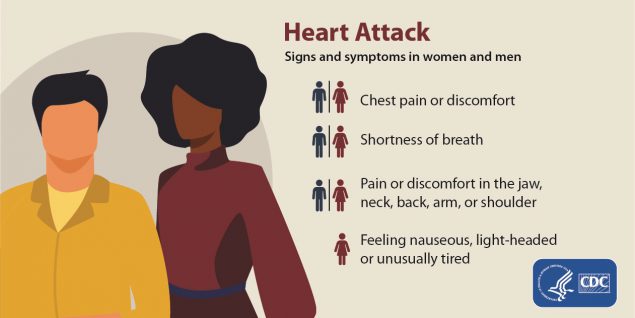- Web
- Feb 15, 2026
Before a cardiac arrest, men and women have different symptoms, study finds
-

- Web Desk
- Sep 01, 2023

ISLAMABAD: Although there are some known signs and symptoms of cardiac arrest, also known as sudden cardiac arrest, most times it occurs without warning.
Now, researchers from the Smidt Heart Institute at Cedars-Sinai Health System have found that half of people experiencing a sudden cardiac arrest also had a telling symptom 24 hours beforehand.
Additionally, researchers discovered those warning symptoms are different between men and women.
This study was recently published in the journal Lancet Digital.
Cardiac arrest is different from a heart attack. A heart attack happens when a blockage in an artery stops blood from flowing through the different sections of the heart, but it does not cause the heart to completely stop beating as cardiac arrest does.
Study: Extreme cold wiped out human ancestors 900,000 years ago
However, having a heart attack can increase a person’s risk for sudden cardiac arrest.
Often, cardiac arrest will occur without any warning signs and will cause a person to faint or become unconscious.
Sudden cardiac arrest is a life threatening emergency, and you should call to get emergency care as soon as possible.
The scientists also found differences in the sudden cardiac arrest warning symptoms between men and women.
Researchers found that the most prominent symptom for women 24 hours before cardiac arrest was shortness of breath. For men, chest pain was the preeminent telltale symptom.
“There is increasing and urgent recognition of how important it is to always perform clinical research that can evaluate sex differences between conditions,” Dr. Chugh said.
“In advising patients, especially those who are known to have significant heart conditions, healthcare providers can make them aware that women with unexpected shortness of breath have a 3-fold higher risk of an imminent sudden cardiac arrest; and men with unexpected chest pain have a 2-fold increased risk,” he added. “In these situations, it would be prudent to seek urgent care.”




